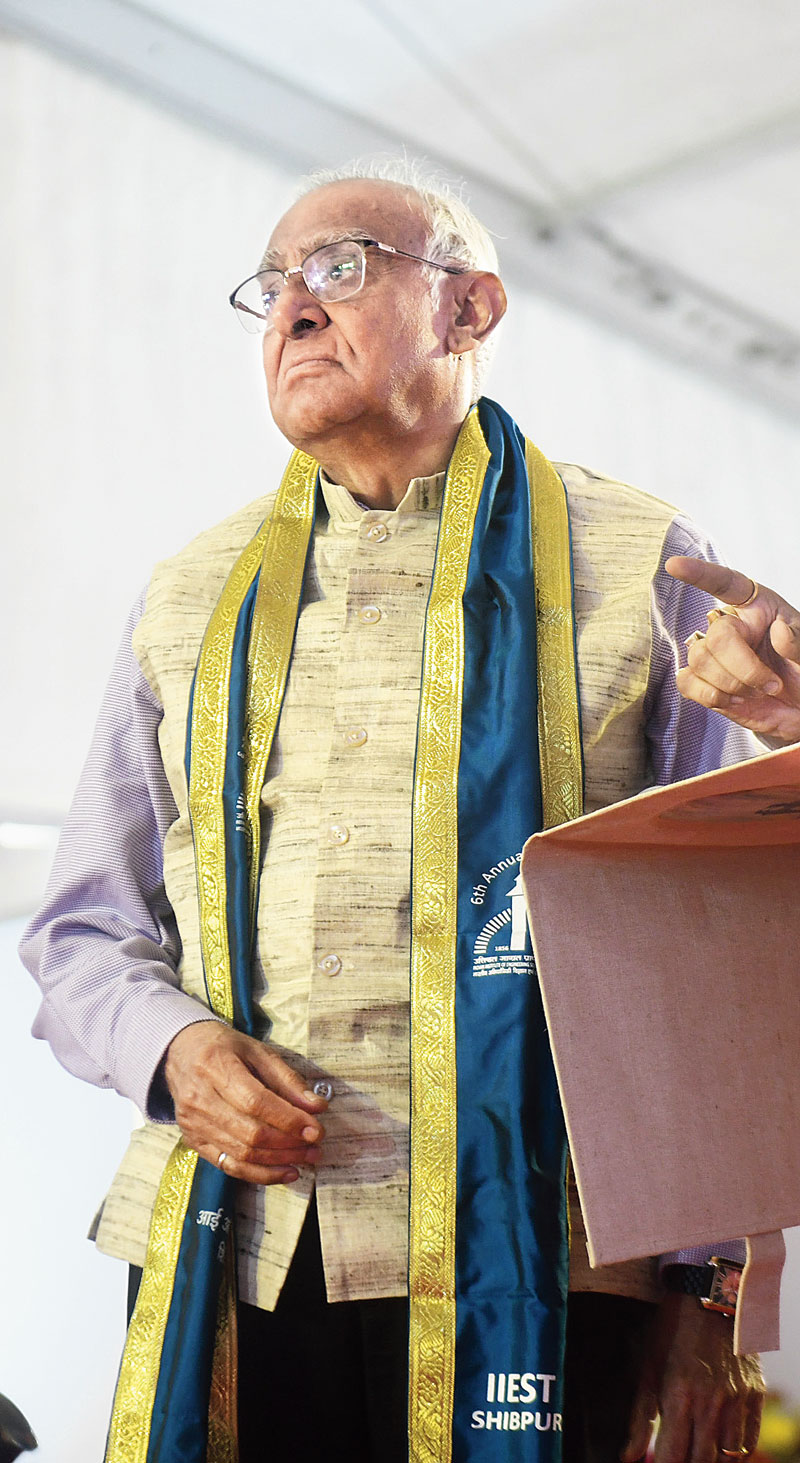The government stands accused of “intervening” in the selection of vice-chancellors and directors, Vasudev K. Atre, the chairperson of the board of governors of the Indian Institute of Engineering Science and Technology (IIEST), said on Friday.
“Whenever we select a vice-chancellor or a director, there is controversy. Why? Leave it to the academic world (to make the selection). Government should not be involved at all, according to me,” Atre, a former director-general of the Defence Research and Development Organisation, told Metro on the sidelines of the Shibpur institute’s convocation.
“There is a perception that the government intervenes. There is a perception that there are forces behind which does this intervention.”
The government should “keep away from the academia” and intervention in the selection process results in “adverse downstream effect” on the institutes, he said.
Atre spoke on the issue of intervention after delivering his speech at the sixth convocation of IIEST.
“I personally tend to think the government should keep away from the academia. Fund it, legislate it, make the rules and keep away from it. Politics should never enter academic atmosphere,” he said.
“There should not be any political (intervention).... Lay down the laws clearly and let them (the institutes) operate. If they don’t operate within that laws, you tackle them. But here, there seems to be an impression that there is a continual attempt to regulate the selection,” said the IISc alumnus, who was also scientific advisor to the defence minister.
“It looks like that. I am not sure whether it’s true. But that’s what I hear. And I have seen it happening in some cases…. It happens all over the country.”
Allegations of political intervention in the selection of VCs or directors of academic institutes are on the rise during the tenure of the Narendra Modi government.
Be it the selection of the VC of Jawaharlal Nehru University or chairperson of the Film and Television Institute of India (FTII), Pune, the Centre stands accused of controlling the selection process.
Economist Prabhat Patnaik had on January 17 said while addressing students of Jadavpur University: “One of the first things the BJP government tried to do on coming to power was to capture the universities. They put handpicked people from the RSS as vice-chancellors in a whole range of universities — JNU, Santiniketan…. The idea was they would infiltrate the teachers’ association, the students’ union…. The person who was selected as VC of JNU used to run shakhas at his home”.
At IIEST, Atre flayed the government’s decision to keep opening IITs and NITs without setting up proper infrastructure.
“We start IITs without proper infrastructure. I was NIT Goa chairman. For five years we did not even get the land. We used to operate from rented buildings…. Just look at the amount of money we spend on research and development — 0.8 per cent of our GDP. We should spend at least 3 per cent,” he said.
Atre expressed his concern over the state of infrastructure on the Shibpur campus. “Look at the campus. Hundred-and-sixty-year-old campus. You walk around the campus. You will feel sorry. Academic world requires a clean atmosphere. Buildings are falling. Aren’t they?” he said.
Poor infrastructure has been a bane of the Shibpur institute. Last November, director Parthasarathi Chakrabarti had sought “generous funding” from the Centre for the renovation of many of the buildings on the campus during a presentation in front of President Ram Nath Kovind.
Asked about Atre’s comment, Chakrabarti said: “We have already taken steps to upgrade the infrastructure.”










